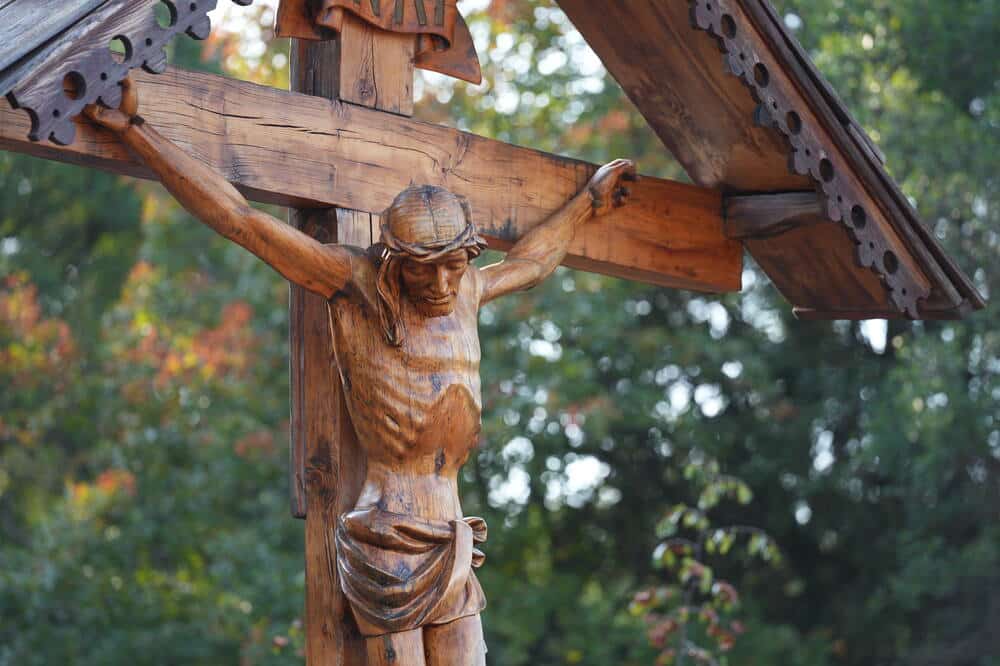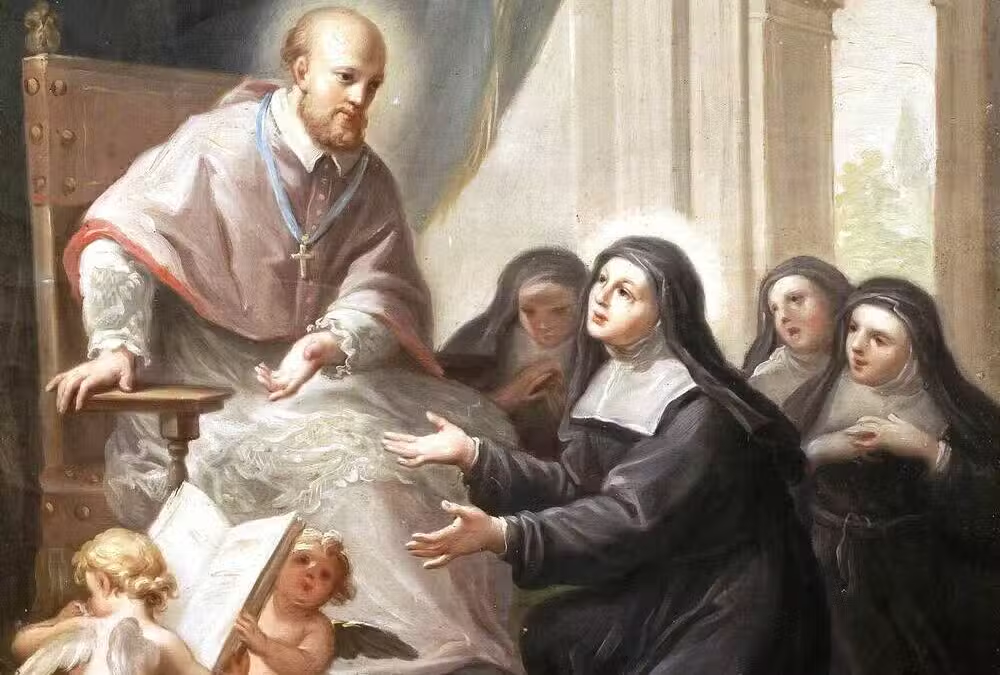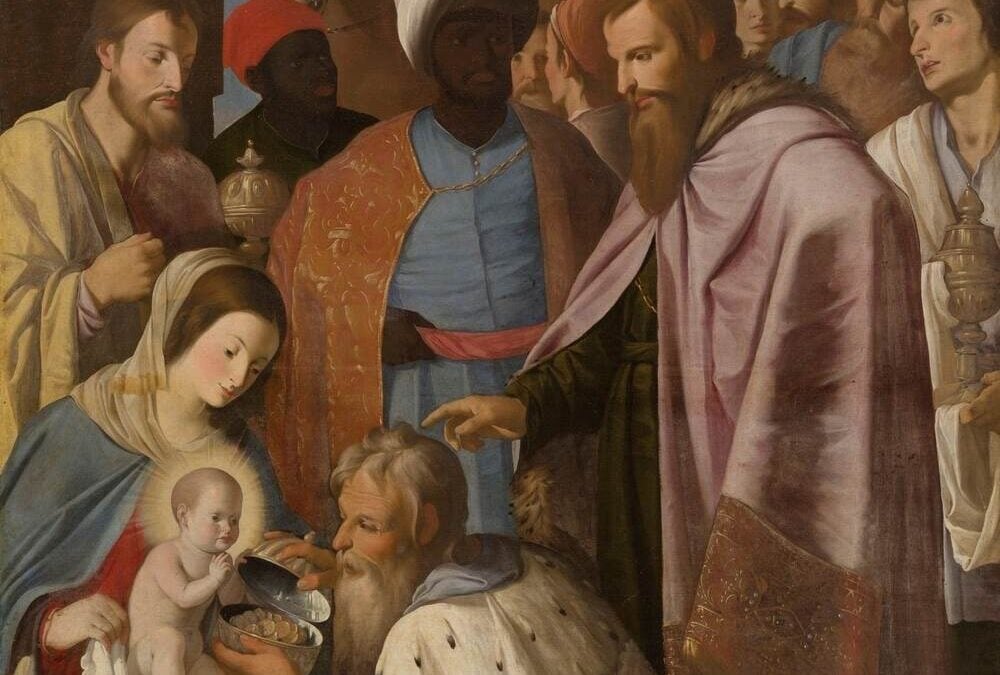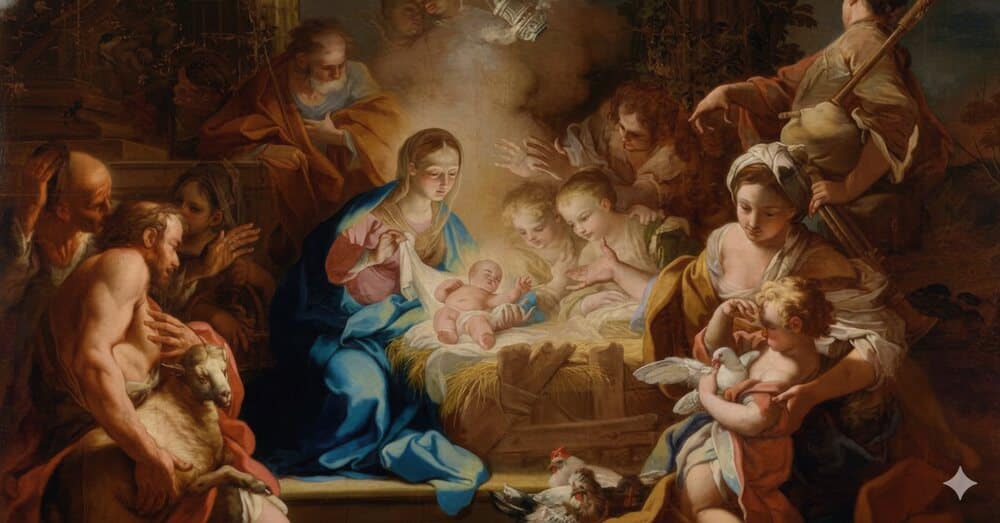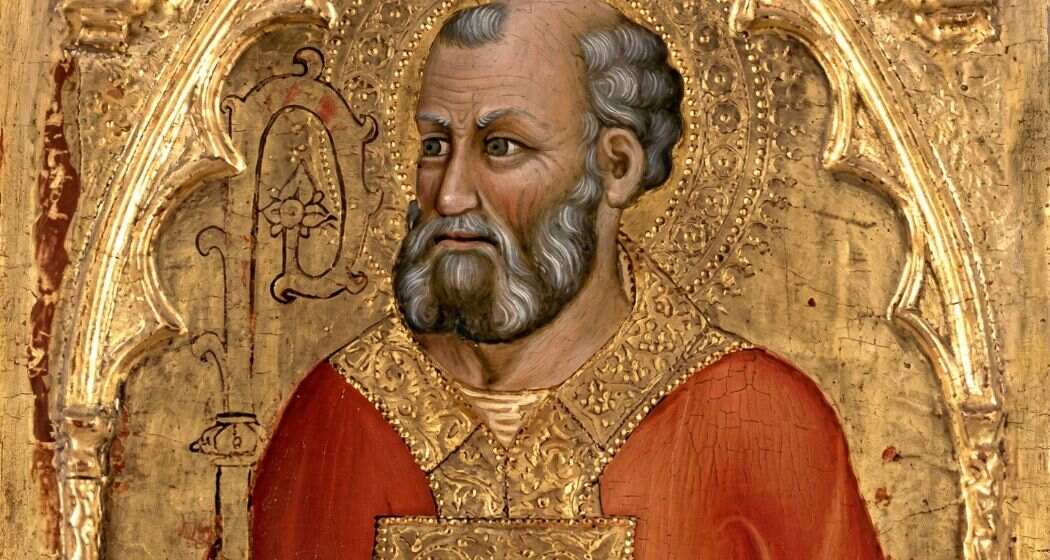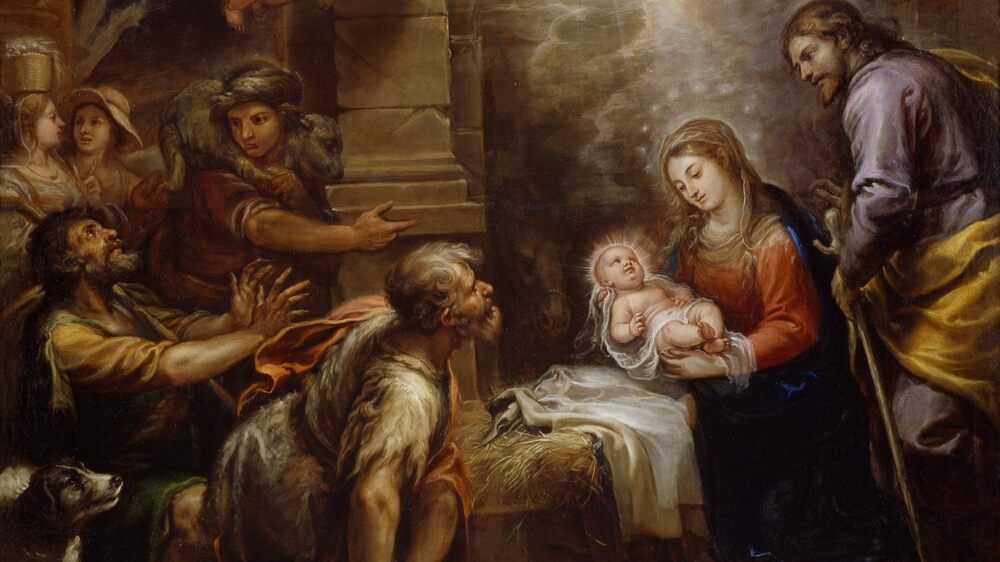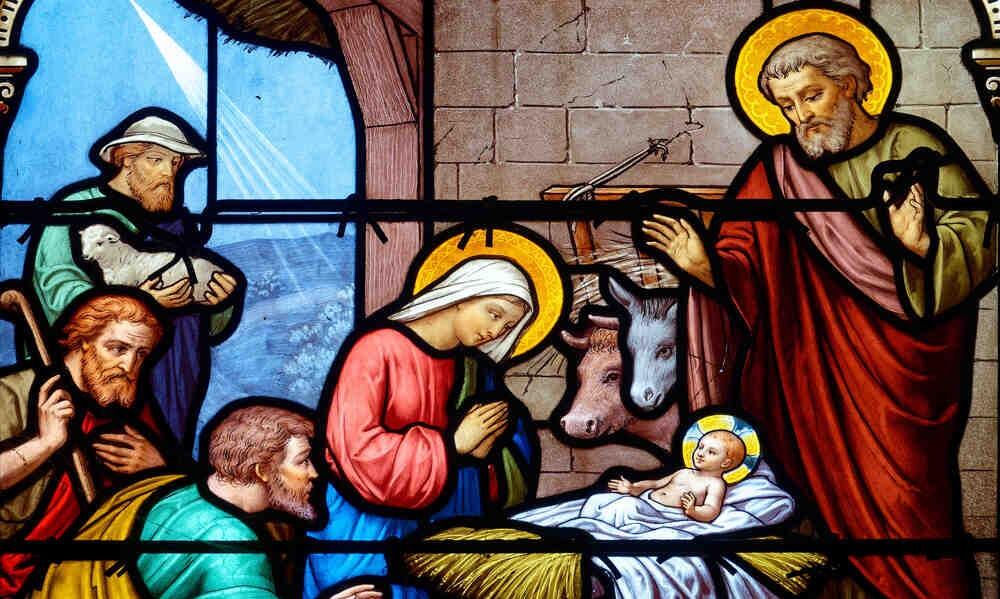Editor’s note: The following is adapted from a Lenten mission talk given by Dr. Michael A. Dauphinais at Ave Maria Parish, Florida, on April 1st, 2025. The video is available at https://vimeo.com/1070449148
Dr. Michael A. Dauphinais serves as the Chair of the Theology department at Ave Maria University. He works as the Father Matthew Lamb Professor of Catholic Theology and co-director of the Aquinas Center for Theological Renewal. He is also the host of the Catholic Theology Show podcast, available on your preferred podcast provider.
You can use the Catholic Mass Times app to find the nearest Catholic church with Mass, Confession, and Adoration schedules. It will surely help you! Download it now.
In the previous article, we reflected on radical faith—believing so completely in what God has revealed and done for us that we don’t need anything to be different.
Radical faith means admitting the bankruptcy of our own efforts to reach God, live life well, or love our neighbor. It means acknowledging that we cannot do this on our own, but that in Jesus Christ, God has done for us what we could not do for ourselves. In Him, we find redemption, restoration, and communion with the Father.
We began by imagining a person waking up in a hospital bed with no memory of who they are or whom they can trust. That amnesia mirrors the spiritual condition of humanity. But Jesus enters our brokenness to restore our memory of God as a loving Father and of ourselves as His beloved children.
As St. Catherine of Siena tells us, Jesus is the bridge home.
The Journey of Hope
Today, we turn to the next step in our journey: hope. We move from despair to hope, from resentment to love, from hellish exile to a heavenly home.
Imagine waking up again in a hospital bed. This time, you remember who you are and whom you can trust—but it’s pitch black. You can’t see or touch anyone. That’s what the journey of hope can feel like. You know the Son dwells in you. You know the Holy Spirit is present. You know the Father is loving and merciful. And yet, sin and suffering persist. They do not go away.
Psalm 42 expresses this longing: “Why are you downcast, O my soul? Why so disturbed within me? Put your hope in God, for I will yet praise Him, my Savior and my God.”
Even with faith, we experience darkness. We’re tempted to despair—thinking our situation is beyond help—or to pride—thinking we don’t need help.
As before, I’m not asking you to compare your story to mine or the stories I’ll share, but to identify with them. Try to understand what I’m unfolding here.
Jesus Christ has done everything. But His work includes our free response. How we respond to sin and suffering matters. Our lives matter.
These three talks follow the structure of the Rosary. Faith is the joyful mystery—our beginning. Hope is the sorrowful mystery, the painful journey that we must endure without giving up. And Love is the glorious communion of the Trinity.
As St. John Henry Newman said, “Conversion is the work of a moment; holiness is the work of a lifetime.” That is the story of hope.
Identity and Hope
Hope, like faith, is rooted in identity—God’s and ours.
Fr. Josh Johnson, in his book Broken and Blessed, tells the story of a woman named Tanya. Her son was in prison, her husband had just died, and on the way home from the funeral, she totaled her car. She told Fr. Josh, “I’m a good person. Why does everything go wrong? If God cared about me, I wouldn’t be suffering so much.”
Fr. Josh paused, prayed, and then responded: “Let me tell you about a man named Paul. God called him to preach the gospel. He was shipwrecked three times, stoned, arrested, and eventually executed. Or think of Mary—chosen to bear the Son of God. And yet she suffered profoundly: rejected in Bethlehem, fleeing to Egypt, hearing of the slaughter of children, watching her Son be misunderstood, betrayed, denied, and crucified. Mary lost her husband and her Son.”
Then he said: “God doesn’t call us to prevent suffering. He calls us in the midst of suffering.”
Tanya had grown up in the Church, but she had come to believe lies about God. As Fr. Josh wrote: “She never saw God as He reveals Himself in Scripture and the Church.” She believed in a God who prevents suffering—not a God who enters it, transforms it, and walks with us through it.
The Lie We Must Reject
This is the second fundamental lie of original sin.
- The first is “You shall be as gods”—you can manage life alone.
- The second is “You shall not die”—you won’t suffer if you follow the serpent’s way.
So when suffering comes, we look for someone to blame. But the lie was never true to begin with. It tells us we can outrun or outsmart suffering and death. We can’t. We must turn instead to the One who has conquered them.
In John 5:17, Jesus says, “My Father is working even now, and I also am working.” Even when life falls apart, God is still working.
Suffering Has Value
In the previous article, I spoke about Dr. Robert Redfield. Pope John Paul II told him: “You’re wrong about God. He’s not an energy force. He’s a person. And you’re wrong about prayer—it’s the most powerful tool we have. And you’re wrong about suffering—it has value.”
Dr. Redfield didn’t believe that at first. But 18 months later, he went to Lourdes for the first World Day of the Sick. There, among 25,000 people, he saw the real miracle—not physical healing, but acceptance. Families reconciling with suffering. People embracing their cross.
Radical hope includes radical acceptance. To accept God’s will so completely that we don’t need it to be different.
In 1916, the year before the apparitions of Our Lady of Fatima, an angel appeared to the children and said: “Above all, accept and endure with patience whatever suffering the Lord sends you.”
Maurice Baring, a friend of Chesterton, wrote: “One had to accept sorrow for it to be of any use… Accepted sorrow is the secret of life.”
“I’m Not Punishing You”
Emma Benoit, a teenager from Louisiana, attempted suicide at seventeen. In that moment, all she knew was that she wanted to live. Afterward, she was left paralyzed from the chest down. In her struggle, she cried out to God, “Why?”
She heard a voice: “I am not punishing you. I am rewarding you. Be patient.”
In an instant, her resentment turned to gratitude. She began to see her life, her mobility, her hands—even her wheelchair—as gifts. “I am not punishing you. I am rewarding you.”
One Moment at a Time
St. Thérèse of Lisieux said, “I only suffer for one moment.” She explained that people become discouraged because they dwell on the past or fear the future.
Jesus Himself said in Matthew 6:34, “Do not worry about tomorrow. Today has enough trouble of its own.” A few verses earlier He says, “The eye is the lamp of the body.” Where is your attention?
If we try to carry yesterday’s regrets or tomorrow’s fears, we collapse. But God gives us grace for today—our daily bread.
Sometimes in prayer, consider lighting three candles: one for the past, one for the present, and one for the future. Then, blow out the first and the third candles. The past is in God’s hands. The future is unknown. But the present is where God is working.
As Aquinas says, “God can raise the dead, but He cannot change the past.”
The past is what it is.
But today, we can walk with Him.
What Makes Suffering Redemptive?
St. Thomas Aquinas says it wasn’t the mere suffering of the Cross that redeemed the world—it was the willing acceptance of that suffering out of love.
What made the Cross redemptive was that Jesus embraced it freely, for love of the Father and for us.
And so it is with us. Our suffering becomes redemptive when we embrace it with love— but this is not something we can do alone. On our own, we resist. We blame others. We blame ourselves.
We spiral into shame and self-condemnation.
But the suffering still exists. The pain is real.
So we ask Jesus to do for us what we cannot do for ourselves: to accept the suffering in us, as He accepted His own.
A Personal Story
I want to share a personal story. A few years ago on Pentecost Sunday, I was thrown from a horse. I wasn’t a good rider—but I thought I could race a mini horse. I fell hard. Landed flat. No slow motion, no graceful recovery—just instant impact. I tore the bridle off with me and landed hard on my ribs.
I was taken to the ER, struggling to breathe. I had recently made a spiritual resolution: to give thanks to God for everything. So I said, “Thank you, Lord. I don’t understand this, but thank you.” What’s a few broken ribs?
But then came a deeper trial.
Later that night, I got a text from my son. It said simply, “Goodbye, Dad.” He was in the midst of a suicide attempt.
Still lying in the hospital bed, in pain, I tried to text and call him. He wouldn’t answer. I had to get others involved. By God’s grace, friends reached him in time and got him to safety.
But then I had to face the terrifying reality: What if I lose him?
And I remembered something a mentor told me: “To accept God’s will is to be willing to accept any and all outcomes—including the death of your son.”
There was no way around this pain. I had to walk through it. And I had to give my son completely to God.
I prayed: “Lord, before he was mine, he was yours. I give him back to you.” I didn’t know what would happen next. But I didn’t have to. Because I knew Who held the future.
From Why to Who
I learned that “Why?” is not the question that heals. The better question is “Who?”
Who will walk through this with me?
Who will carry me?
Who will redeem this pain?
Things don’t simply happen to us. In God’s providence, things happen for us.
When we accept suffering with love, and invite Jesus into it, we find a peace deeper than understanding.
Repentance and Shame
What about our sins?
Much of our suffering comes from the outside—but some comes from our own bad decisions.
How do we repent?
We begin by admitting: I can’t repent on my own. If I try to repent by my own effort, I make excuses. I minimize. I protect my ego.
But real repentance says: “That was me.” I was prideful, envious, lustful, gluttonous. That was my sin.
And when we do that, we open the door to healing. We hear Jesus say: “Shame off you.”
The Trap of Shame
There’s a scene in the film The Edge where men lost in the wilderness discover they’ve walked in a circle and returned to their original campsite. They despair. One character says, “You know why people die in the wilderness? Shame.” They’re so angry at themselves for getting lost, they stop thinking clearly.
That’s what happens to us in sin. We’re ashamed, and the devil uses that shame to keep us stuck.
Before we sin, he tells us it’s no big deal.
After we sin, he tells us it’s unforgivable.
But Jesus is not the accuser. Jesus is the advocate.
He says, “Peace. Neither do I condemn you. Go, and sin no more.”
Blind Hope
St. Thérèse of Lisieux once wrote to her sister, “Even if I had committed all the sins possible, I would lose none of my confidence in God. I would throw myself into His arms, because I know how much He loves the prodigal son.”
That is blind hope. Hope that doesn’t see its own merit—only the mercy of God.
Aquinas said that hope is not based on our strength or virtue but on God’s power and mercy.
And, because of that, Aquinas speaks of the certainty of hope. Not arrogance. Not presumption. But trust. Trust that God will bring us home, because we cannot bring ourselves home.
The Desire for Heaven
C.S. Lewis, in The Problem of Pain, wrote:
“There have been times when I do not think we desire heaven;
but more often I find myself wondering whether, in our hearts,
we have ever desired anything else.”
All our longings—our thirst for peace, beauty, justice, intimacy—are echoes of our desire for heaven. Lewis called it the secret signature of the soul.
Jesus, the Good Shepherd
In the early Church, Christians couldn’t display crosses openly, but in the catacombs they painted Jesus as the Good Shepherd, carrying the lamb. They gave Him a philosopher’s staff—the symbol of one who prepares us for death.
Benedict XVI said that today, we hope science or politics will redeem us. But man is redeemed not by science or cleverness, but by love—the absolute and unconditional love of Jesus Christ.
That’s why Psalm 23 can say: “Though I walk through the valley of the shadow of death, I will fear no evil, for You are with me.”
We don’t walk through death alone anymore. Jesus has gone before us. He holds our hand.
‘It Is Well’
In the 1870s, Horatio Spafford lost his son, his business, and then his four daughters in a shipwreck. His wife survived and sent him a telegram: “Saved alone.”
Spafford boarded a ship to meet her. When they passed the spot where the ship had sunk, he stood in prayer—and then wrote the words:
When peace like a river attendeth my way,
When sorrows like sea billows roll,
Whatever my lot, Thou hast taught me to say:
It is well, it is well with my soul.
Final Reflection
So I invite you now to reflect:
Are there places in your life where you are resisting suffering or grief?
Are there sins you’re too ashamed to bring to Jesus?
Can you ask Him to carry what you cannot?
Can you let Him say to your heart: “Shame off you”?
Jesus, help us hope with blind trust. Help us say with confidence:
I don’t need anything to be different—past, present, or future—
because You are with me. And You are enough.
Let us continue in quiet prayer, asking Jesus and the Holy Spirit to speak to our hearts about hoping more in Him, and in His Providence. Listen for the Lord speaking in your heart as we hear the words of the hymn “It is well with my soul”:
When peace like a river, attendeth my way
When sorrows like sea billows roll
Whatever my lot, thou hast taught me to say
It is well, it is well, with my soul.–
It is well
With my soul
It is well, it is well with my soul–
Though Satan should buffet, though trials should come
Let this blest assurance control
That Christ has regarded my helpless estate
And hath shed His own blood for my soul.–
It is well (it is well)
With my soul (with my soul)
It is well, it is well with my soul–
My sin, oh, the bliss of this glorious thought!
My sin, not in part but the whole
Is nailed to the cross, and I bear it no more
Praise the Lord, praise the Lord, o my soul!–
It is well (it is well)
With my soul (with my soul)
It is well, it is well with my soul

